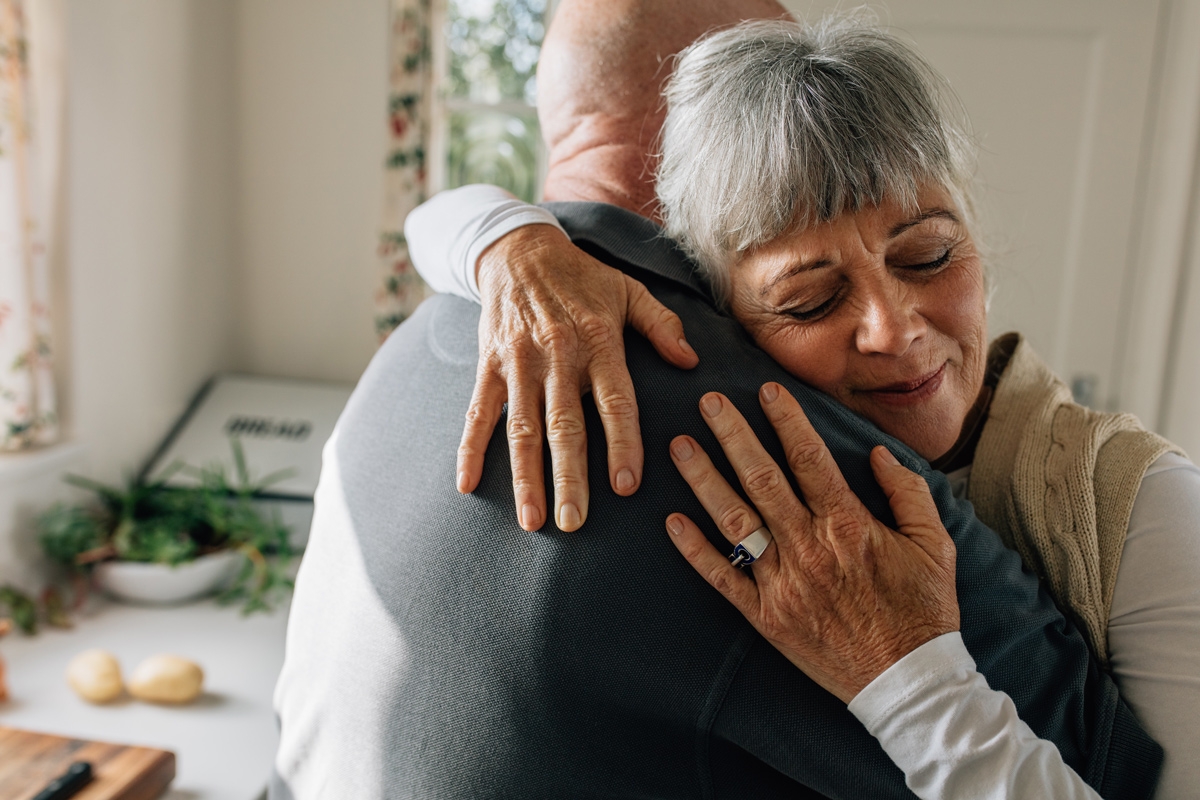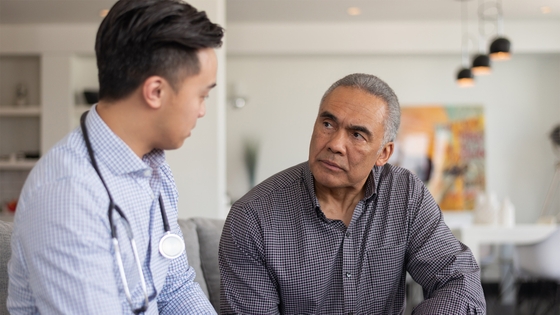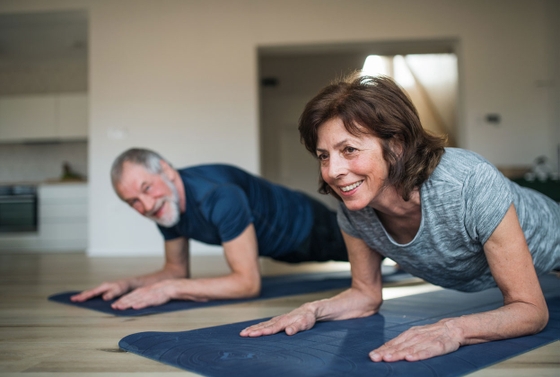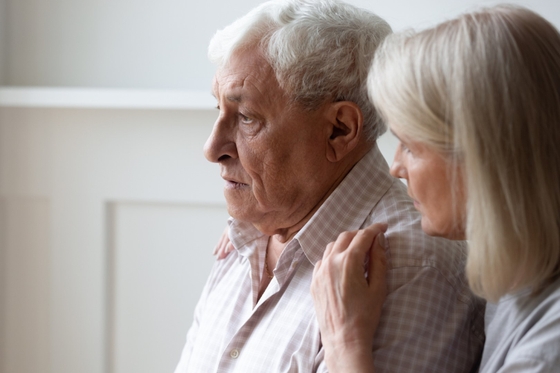
Support after a heart attack
Key takeaways
2 min read
- It's normal to feel worried, confused or overwhelmed after a heart attack. There will be a lot of new information to take in, from managing your medicines to forming heart-healthy habits. Remember, you don't have to navigate your recovery alone - support is available.
- Cardiac rehabilitation (cardiac rehab) is one of the best things you can do to improve your heart health after a heart attack. Cardiac rehab programs offer tailored advice, education and supervised exercise.
- Join the MyHeart MyLife support program - a free online program for people who have had a heart attack, angina or been diagnosed with heart disease. Over 12 weeks, you’ll receive bite-sized articles, videos, text messages and emails tailored to your needs. Carers can join too.
- When you join MyHeart MyLife, you'll also get access to our MyHeart MyLife online peer support community. You can connect with others on a similar journey to you to share experiences and learn how to lead a heart-healthy life together.
It’s normal to feel scared, confused and overwhelmed after a heart attack. After all, a heart attack is a life-changing event and navigating the road to recovery isn’t easy. Questions, confusion, uncertainty and even fear are common. It’s important to know you’re not alone and that there are many other people experiencing the same feelings as you.
It can be difficult to understand complicated medical information and treatments. It’s normal – even helpful – to have a lot of questions. Make sure to ask these questions to your doctor, so that you understand your treatment and recovery.
Where to find support
A heart attack can be a life-changing experience. Remember that you’re not alone. Support is available.
Cardiac rehabilitation
Attending special rehab – called cardiac rehabilitation – is one of the best things you can do to improve your heart health.
Cardiac rehab programs offer individual advice, education, supervised exercise and:
- Advice on your treatment and managing medication/s
- Information about your heart condition
- Support with getting back to your usual activities
- Support to change your lifestyle, for example quit smoking
- Education on warning signs of a heart attack and what to do in an emergency.
Programs can be offered in different ways and places. They can even be conveniently delivered over the phone, face-to-face, in a group, online, or in hospitals, clinics and community settings.
Cardiac rehab is very beneficial. It can:
- Help you recover faster to get back to everyday life
- Assist you to cope with what has happened
- Help you to manage your heart health better
- Reduce your chances of developing further heart problems in the future.
Your doctor, nurse or health worker will advise you to attend cardiac rehabilitation and provide a referral if needed. If you haven’t been referred, ask your doctor, nurse or health worker, or contact your local cardiac rehabilitation program.
It’s a good idea to book into a program soon as possible. Find a cardiac rehabilitation program now.
Join the MyHeart MyLife support program
The MyHeart MyLife support program can help you (and those caring for you) on your recovery journey after a heart attack. By joining, you’ll have access to heart health information, expert guidance and practical tips tailored to your needs.
Delivered over 12 weeks, you’ll receive:
- access to an online dashboard with bite-sized articles and short videos
- supportive text messages and emails to motivate and inspire
- access to the MyHeart MyLife online support community, where you can connect with others on a similar journey to you.
The free program covers a range of topics, from forming heart-healthy habits and looking after your mental health and wellbeing, to managing your medicines.
Join an online community
We have two online communities you can join to connect with others who have also been diagnosed with a heart condition, or is caring for someone who has. Connecting with other people can ease feelings of isolation, provide reassurance, and help you in learning how to lead a heart-healthy life.
- The MyHeart MyLife online support community is a safe virtual space for adults living with a heart condition in Australia. We also welcome caregivers, loved ones, friends and family supporting people living with a heart condition. Join MyHeart MyLife via Facebook.
- The Supporting Young Hearts online support community is for younger people aged 18-45 years (and their support people) where they can share their experiences and give and receive support from others on a similar recovery journey. Join Supporting Young Hearts via Facebook.
Where to go for advice and support?
In addition to your GP, cardiologist and the rest of your healthcare team, there are lots of other support services available. We’ve listed some of these below:
- MedicAlert Foundation: A service for people with heart conditions, particularly those who are prescribed ongoing medicines. Medical ID bracelets and wristbands provide critical information in case of emergency. Phone: 1800 882 222
- Beyond Blue: Phone: 1300 22 46 36
- Diabetes Australia: Phone: 1800 177 055
- Kidney Health Australia: Phone: 1800 454 363
- Stroke Foundation: Phone: 1800 787 653
- Carer Gateway: Phone: 1800 422 737
- Accredited Physiotherapists: To find an Accredited Physiotherapist
- Accredited Practicing Dietitians: To find an Accredited Practicing Dietitian
- Exercise and Sports Science Australia: To find an Accredited Exercise Professional
You might also be interested in...

What is a heart attack?
A heart attack is a medical emergency. Learn the key signs, causes, and treatment options to protect your heart and act quickly when every second counts.

Physical activity after a heart attack
Discover what you need to know about being active after a heart attack.

Feelings and emotions after a heart attack
This is a guide to how you might be feeling after a heart attack.
Last updated12 August 2024
Last reviewed23 January 2024